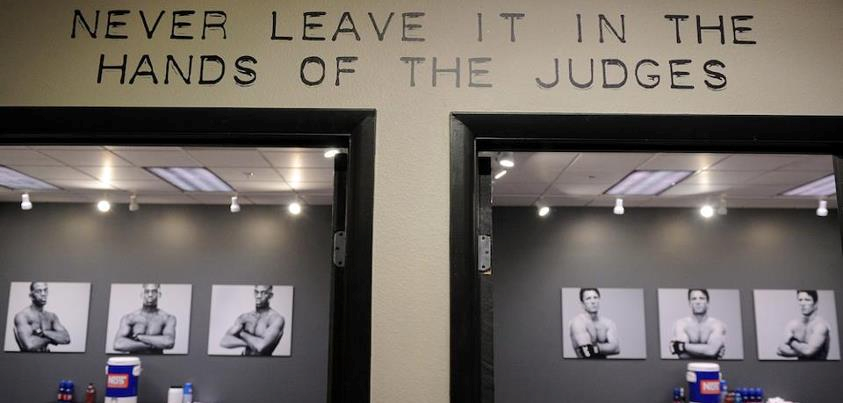UFC: Comparing Unified Family Courts with Ultimate Fighting Championship
I am a huge fan of the Ultimate Fighting Championship, usually referred to by its initials, UFC. This comes as a big surprise to those getting to know me, because in my professional life I am dedicated to helping Tampa Bay families peacefully resolve their differences via the collaborative law process. But there is something about the techniques, the artistry, the competition, the drama of a good fight that keeps drawing me to watch the sport.
And yet, I am not a big fan of another UFC, the Unified Family Courts, at least not as a means to resolve family disputes. Beginning in 1991, a series of Florida Supreme Court opinions set out to create separate court division for families going through divorce, coordinate actions among the judges, and resolve family law issues in a fair, timely, efficient, and cost-effective method. Though we have incredible and dedicated judges, clerks, and court staff who try their very best, it is still a very flawed system for helping families move on with their lives.
This post looks to compare these two UFCs.
It’s A Fight!
When two mixed martial artists step into the cage against one another, all eyes are on them, and they have been physically and mentally preparing for months and months for a knock-down, drag out fight. When two litigants step into a Tampa Bay courtroom, a public arena where anyone may come as a spectator or review filed transcripts later on, they have spent many months and years (and oftentimes many tens of thousands of dollars), preparing for a fight. And have no doubt, when people fight in the Unified Family Courts, a husband is being pitted against a wife, a mother pitted against a father.
Legal Jiu-Jitzu
The range of techniques that are displayed in the Ultimate Fighting Championship are absolutely breathtaking. From jabs to takedowns to flying armbars, each fighter attacks and counterattacks and does whatever he or she can to get the upper hand over the opponent. Similarly, in the Unified Family Courts, opposing attorneys and opposing parties engage in a variety of tactics in an attempt to build up one side and tear down the other. Litigation attorneys utilize motions in limine to exclude the other party’s evidence, expert witnesses to question each other’s parenting ability or mental stability, and forensic accountants to publicly pick apart private businesses, among other methods. The end result, in both UFCs, is that each fighter ends up battered and bruised.
Never Leave It In The Hands Of The Judges
Dana White, the President of the Ultimate Fighting Championship, has a famous saying: Never Leave It In The Hands Of The Judges. This essentially means that fighters should not rely on judges to award them what they want, as the results of judging are inconsistent and can vary wildly. Even if a fighter, the crowd, and commentators are certain of victory, it is a common occurrence for fight judges to surprise everyone and announce an unexpected decision.

In the same vein, spouses going through divorce should not leave it in the hands of a judge. Even if you are certain that you are right, and the other spouse is wrong, family law judges have only a minimal amount of contact with the parties over a very short period of time. Judges try their hardest to come to the best decision they can, but oftentimes they are limited in their options of what they can decide, and the decisions they make are frequently shocking to the parties involved.
Instead of allowing judges decide important issues like where children should lay their heads at night or who should get the family pet, Tampa Bay spouses can instead decide to work with one another via a private dispute resolution process such as collaborative divorce. In the collaborative model, each spouse is represented by his or her own specially-trained attorney, and all work together as a team to find the best resolution for the family. Neutral professionals are oftentimes brought in to help the spouses communicate effectively and focus on the future rather than the arguments of the past. Decisions are made by the clients in private conference rooms rather than by judges in public courthouses. The spouses are treated as teammates rather than as opposing parties.
Ultimate Fighting Championship is a great spectator sport, but I would not want to take part in one of those fights. This is how the Unified Family Courts should be viewed: as a spectacle, a place to watch others engage in jaw-dropping behavior, but not a system for which to resolve your own disputes.
If you have questions on how Family Diplomacy: A Collaborative Law Firm can help you, schedule a consultation at (813) 443-0615 or fill out our contact form.
—
Adam B. Cordover is a collaborative attorney who now practices exclusively in out-of-court dispute resolution. He is also president of Next Generation Divorce, one of the nation’s largest collaborative practice groups with members in Hillsborough, Pinellas, Pasco, Sarasota, and Manatee Counties. Further, Adam is an Executive Board member of the Collaborative Family Law Council of Florida and on the Research Committee of the International Academy of Collaborative Professionals.



Leave a Reply
Want to join the discussion?Feel free to contribute!